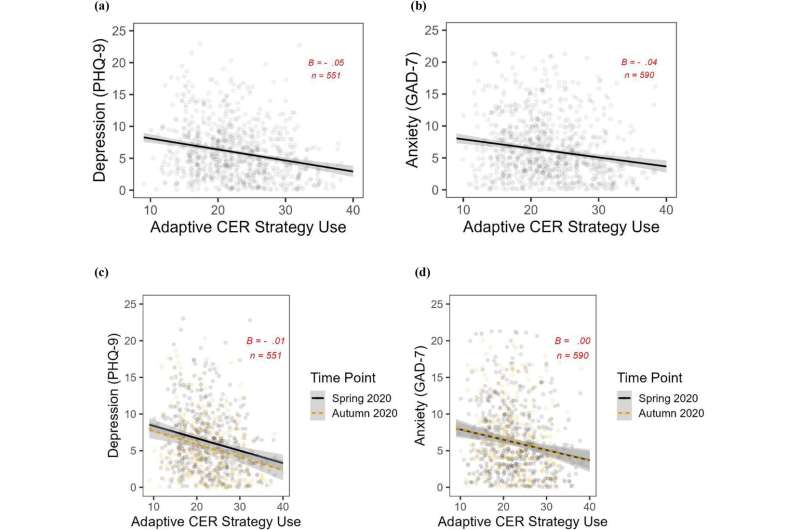This article has been reviewed according to Science X's editorial process and policies. Editors have highlighted the following attributes while ensuring the content's credibility:
fact-checked
peer-reviewed publication
trusted source
proofread
High-quality sleep promotes resilience to depression and anxiety

Research led by researchers at the University of York has shown that quality sleep can help bolster resilience to depression and anxiety. The study, published in Cortex, highlights that chronic stress is a major risk factor for a number of mental health disorders, including depression and pathological anxiety, but high-quality sleep and coping strategies—such as the ability to reframe a situation to see the positive side—can help to prevent poor mental health when faced with negative or stressful experiences.
The researchers studied data from more than 600 participants during the COVID-19 pandemic in 2020—an extended stressful period of time. They aimed to test the theory that coping strategies supported positive mental health outcomes, which could be strengthened by high-quality sleep.
Unique context
Emma Sullivan, Ph.D. student from the Department of Psychology at the University of York, said, "As the COVID-19 pandemic has been a prolonged period of stress for people across the entire world, it offered us with a unique context with which to address our research questions.
"This is the first study to investigate the ways in which positive coping strategies and sleep quality influence depression and anxiety when experiencing a real-world chronic stressor. We found that better sleep quality was associated with fewer symptoms of both depression and anxiety during the initial months of the COVID-19 pandemic.
"These findings highlight the importance of targeting both positive coping strategies and sleep quality when enduring periods of chronic stress."
Mental well-being
The team analyzed data from the Boston College Daily Sleep and Well-being Survey where participants regularly self-reported their sleep quality and mental well-being during the pandemic.
They also completed a baseline demographic survey to obtain information such as their age, gender and ethnicity. As well as collecting information on participants' sleep and mental well-being, the surveys also collected a wealth of additional information such as participants' alcohol consumption, their quarantine status and physical activity levels.
Coping strategies
Dr. Scott Cairney, Ph.D. supervisor on the project from the Department of Psychology at the University of York, said, "We have known for a long time that high-quality sleep is associated with better health and well-being outcomes, but we wanted to know whether this would change if sleep and coping strategies were put under intense and prolonged periods of stress, as it was for so many during the pandemic."
"We found that sleep plays a hugely important role in the management of chronic stress and can sustain well-being over a long period of time, reducing symptoms of depression and anxiety."
More information: Emma C. Sullivan et al, The influence of emotion regulation strategies and sleep quality on depression and anxiety, Cortex (2023). DOI: 10.1016/j.cortex.2023.06.001



















